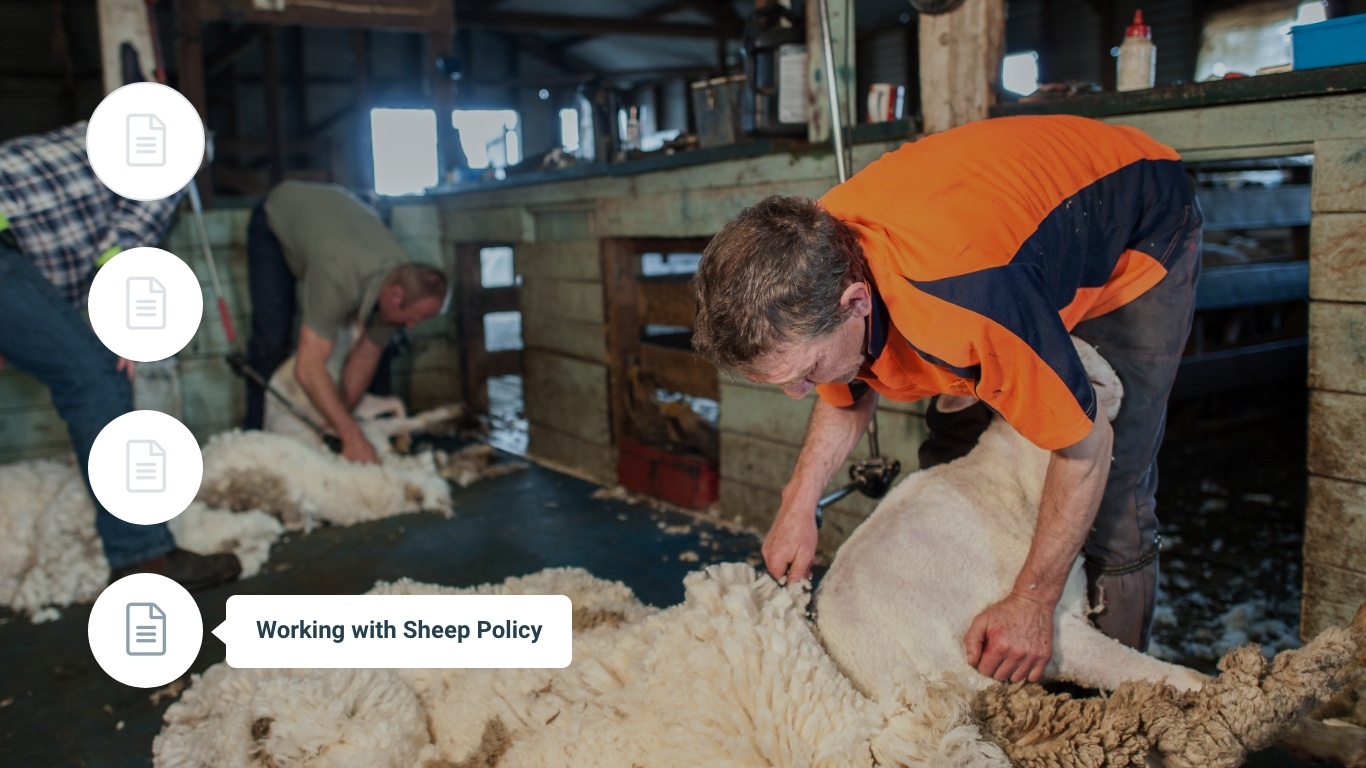Each year farming continues to be one of the riskiest occupations for workers in New Zealand. From July 2022 to June 2023 there were 12 work-related fatalities on farms. On top of that, there were 254 serious injuries and 1,851 injuries resulting in more than a week away from work.
With an estimated 78,000 people employed in the New Zealand agricultural industry in 2023, health and safety doesn’t just need to focus on the physical safety. Farm safety also needs to address mental health and well-being too. Individuals employed in agriculture face a much broader range of risks compared to those in many other industries. Even though risks are present, it doesn't change the fact that injuries and fatalities should be an avoidable part of farm work.
Understanding Farm Health and Safety Legislation in New Zealand
The Health and Safety at Work Act 2015 (HSWA) is the law governing workplace health and safety in New Zealand, and it officially took effect on April 4, 2016. The HSWA requires that WorkSafe are informed when an individual is seriously ill or sustains a severe injury as a result of work. The bottom line - farms are considered workplaces and the health and safety law applies. The aim of this health and safety legislation was to encourage workplaces and PCBUs to be proactive when it comes to identifying and managing risks.
What's a PCBU?
In New Zealand, almost all businesses are considered 'persons conducting a business or undertaking,' or commonly referred as a PCBU. Under health and safety laws, PCBUs have specific legal responsibilities. This means that your farming business is required to meet certain obligations to ensure the safety of employees and any other workers it influences or directs (Contractors). This is called the ‘primary duty of care’.
This involves, so far as is reasonably practicable:
-
the health and safety of employees who work for the PCBU
-
the health and safety of workers whose work activities are influenced or directed by the PCBU while the workers are carrying out the work
-
Visitors and other people are not put at risk by the work of the business or undertaking

WorkSafe are New Zealand’s primary work health and safety regulator. Their role as the government agency is to;
-
educate - assess, investigate, review and resolve health and safety issues
-
engage - to work with industry bodies, unions, employer organisations to encourage improvements
-
enforce - resolve unsafe working conditions
WorkSafe is responsible for overseeing the functions related to workplace health and safety. Their role is essential in ensuring that all safety standards are met and maintained. As a regulator, WorkSafe fosters collaboration with PCBUs, employees and their representatives to instill and advocate for effective work health and safety practices.
We are often asked what it means to be compliant and its a hard question to answer because its something we all strive towards - its a moving target in a good way. Health and Safety is always developing as we identify better and safer ways to do the job. We can’t remember where we read it, but working towards compliance and farm safety should mean actively doing things to make your farm safer. You’ll never be finished with compliance and that shouldn’t scare you.
So, where is the best place to start with health and safety on your farm or rural property?
When reflecting on the necessary documentation, policies and procedures for safety in your farming business, your health and safety obligations can serve as a valuable guide. They can assist you in identifying what is essential to maintain a safe and compliant workplace.
Your main obligation is to ensure the health and safety of your farm workers as far as reasonably practicable. Followed by your requirement that other people are not put at risk by your work (visitors, contractors, members of the public). A health and safety policy serves as a dynamic resource that guides everyone on farm to manage safety effectively.
A Work Health and Safety Policy is essential for every business to establish a solid foundation. This policy should be tailored to your specific farming operation needs, considering the unique risks associated with your property and the scale of your risks.

How can Safe Ag Systems help support Health and Safety needs under NZ legislation?
A health and safety management system provides a structured method for overseeing health, safety, and overall workplace well-being. It encompasses various tools and skills designed to enhance safety practices. Built for agriculture, Safe Ag Systems is tailored to meet the specific needs and requirements of the agricultural industry. Your health and safety management system should incorporate:
-
Good record-keeping
-
Risk management - risk assessments and near miss reporting
-
Maintenance of plant, machinery and equipment
-
Contractor management
-
Inductions, training and licenses
Adhering to industry standards, regulations and legislation is important to demonstrate your commitment to safety. This proactive approach not only safeguards your employees but also strengthens your farming business to handle and respond to future challenges.
Topics: Health and Safety Management System
Disclaimer: Content on this blog may be of relevance to users outside of New Zealand, but content links and examples are specific to New Zealand. Please check with your local authority for your country and industry requirements.











